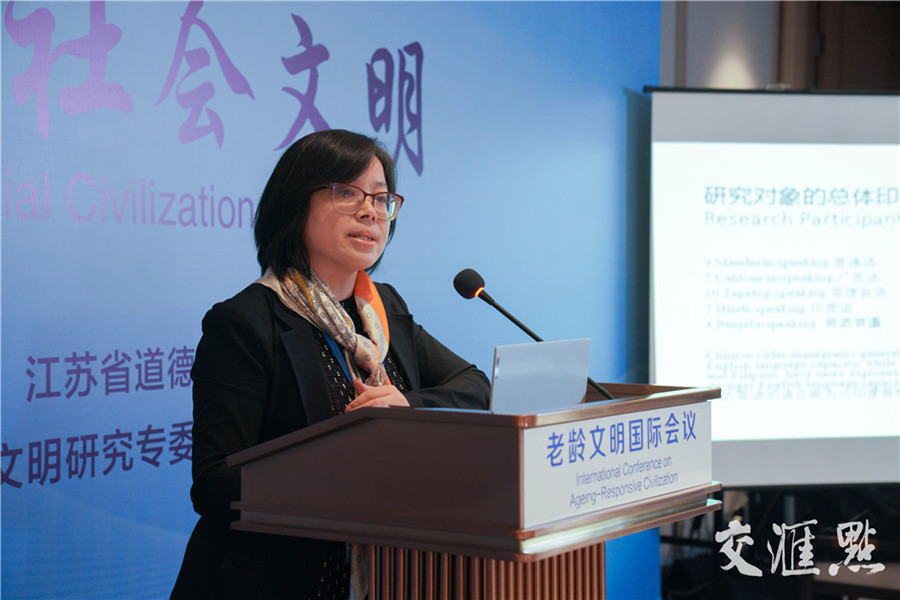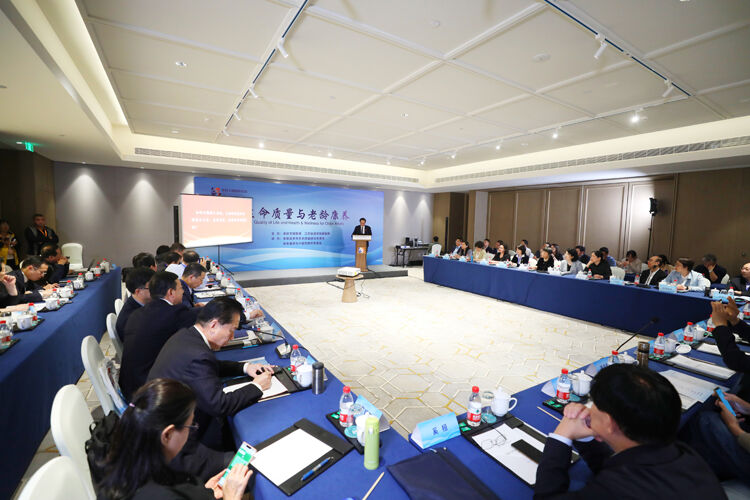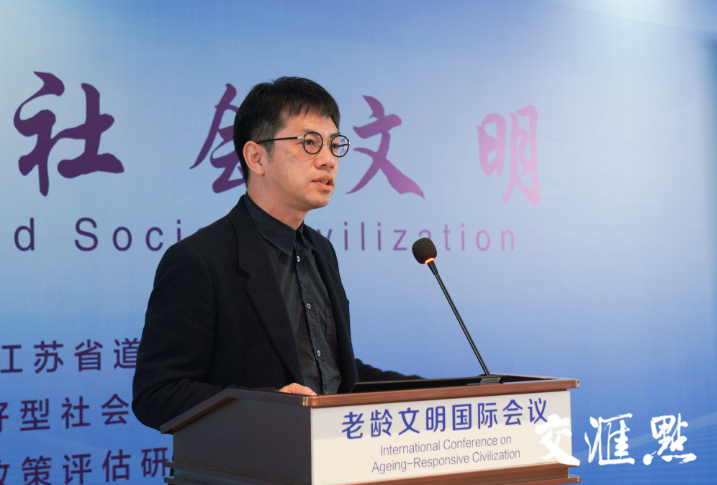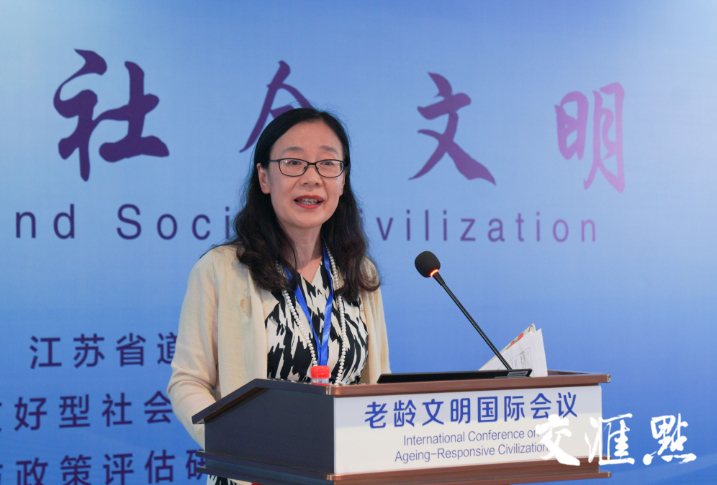The world is currently experiencing an accelerated pace of population ageing, which is fundamentally reshaping global demographics as well as lifestyles and interactions within society.
During the first International Conference on Ageing-responsive Civilization, held in Yixing City of Jiangsu Province from October 14 to 15, Chinese and foreign experts introduced the latest research in various fields, shared international experiences in addressing population ageing, and explored strategies for building an age-friendly society.

Tong Hongmei, an assistant professor with MacEwan University's Department of Social Work, delivers a speech.
In the "Ageing and Social Civilization" forum, Tong Hongmei, an assistant professor with MacEwan University's Department of Social Work, emphasized the importance of social participation for the elderly by analyzing older Asian immigrants in Canada. Additionally, Wang Jue, Dean of the School of Humanities at Southeast University, noted that old age represents a significant stage in life rather than an exit, highlighting the need to build an age-friendly and sustainable society.
In the "Wellbeing of the Elderly and National Strategies" forum, participants shared practices to enhance quality of life and health of older individuals across different countries and cultures while also offering their suggestions.
Yang Cuiying, Director of the Social Security Research Center at Shanghai University of Finance and Economics, suggested proactive measures to strengthen the reserve and supply of healthcare workers and promote a nationwide long-term care insurance program.
Furthermore, Sha Weiwei, vice president of the Jiangsu Research Association for the Development of Undertakings for the Aged, disclosed the expansion of the insurance program to cover the province’s 13 cities with subordinate districts by the end of the year. In terms of talent training, Jiangsu has implemented innovative initiatives, becoming the first in the country to create a professional title system for those working in aged care to support their career growth.

In the forum of "Quality of Life and Elderly Care", Wang Xinlu, vice president of the China Association of Chinese Medicine, advocated for harnessing the unique advantages of Chinese medicine to improve the wellbeing of the elderly. He also stressed the need to promote the innovative development of Chinese medicine on a global scale.
Currently, about 90% of elderly Chinese receive care at home. Zhang Weihong, a professor of public health at Ghent University, underscored the significance of training professionals for home-based elderly care and protecting their rights and interests. This is crucial for improving the quality of such services and advancing the development of an age-friendly society, in the view of Zhang.

Professor Satoshi Ishii from Tohoku Institute of Technology delivers a speech.
In the "Ageing and Social Civilization" forum, Professor Satoshi Ishii from Tohoku Institute of Technology reviewed the trends and changes in nursing homes in Japan over the past 50 years. He explained that the transition from "closed" environments to "open" communities for these nursing facilities is not just in terms of architecture but also in the philosophy of caring for the elderly.

Dong Hua, Professor and Head of Brunel Design School in London, gives a speech.
Dong Hua, Professor and Head of Brunel Design School in London, outlined the development of ageing research in the UK, highlighting the key role of design in age-friendly renovation and urban development. Xiao Lujiang from the US-based U+DESIGNPARTNERS, stated that age-friendly renovations should consider the effects of ageing on the sensory system.
During the "Ageing Industry and Smart Elderly Care" forum, Professor Ling Kar-kan from The Hong Kong Polytechnic University (PolyU), also Director of Jockey Club Design Institute for Social Innovation of PolyU, remarked the need to incorporate existing measures into a long-term strategic framework.
Li Zengyong, Director of the Rehabilitation Training Department of the National Research Center for Rehabilitation Technical Aids, highlighted the increasing importance of smart technology in empowering elderly care services.
In the "Elderly Learners and Social Participation" session, Brian Oldenburg, Director of the NHMRC Centre for Research Excellence in Digital Technology to Transform Chronic Diseases, called for efforts to connect patients, doctors and healthcare institutions through digital technologies and also link hospital services with other services.
According to Professor Ma Xianguo from the University of Shanghai for Science and Technology, senior universities now have the mission of enabling the elderly to embrace intelligent technologies in the information age. Sha Yong, Dean of the School of Sociology and Population Studies at Nanjing University of Posts and Telecommunications, said more efforts are needed to support the retirees to actively participate in economic and social activities and promote active ageing.
Contact us at english@jschina.com.cn
Related:








